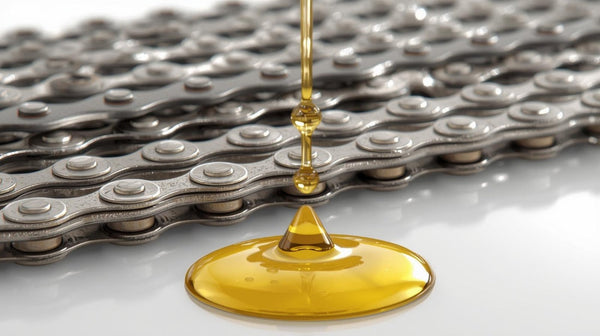Synthetic and mineral compressor oil comparison
Compressor oil, whether synthetic or mineral, plays a key role in ensuring that compressors operate effectively. Both types of oil have their advantages and limitations, so it is important to understand the differences between them to make the right choice for your application. Below I present a comparison of synthetic and mineral compressor oils, taking into account the differences in properties, applications and benefits resulting from their use.
Chemical composition:
- Mineral compressor oil: Mineral oil is made from refined petroleum. It consists predominantly of paraffinic, cyclic and aromatic hydrocarbons.
- Synthetic compressor oil: Synthetic oil is created through chemical reactions that produce specially designed molecules. The chemical composition of synthetic oils is controlled, which allows for more uniform and advanced properties.
Lubricating properties:
- Mineral compressor oil: Mineral oils have good lubricating properties, but are not as efficient as synthetic oils. When operating at high temperatures, they may wear out more, requiring more frequent replacement.
- Synthetic compressor oil: Synthetic oils are characterized by excellent lubricating properties. They provide a reduction in friction and wear, which leads to an extended replacement interval and increased compressor life.
Thermal stability:
- Mineral compressor oil: Mineral oils have acceptable thermal stability, but may degrade more quickly when operated at extremely high temperatures.
- Synthetic compressor oil: Synthetic oils are characterized by excellent thermal stability, thanks to which they retain their lubricating properties even at very high temperatures. This is especially important for compressors operating in difficult conditions.
Oxidation resistance:
- Mineral compressor oil: Mineral oils have lower oxidation resistance compared to synthetic oils, which may result in a shorter oil change interval.
- Synthetic compressor oil: Synthetic oils are more resistant to oxidation, which translates into longer service life and reduced need for frequent oil changes.
Costs and availability:
- Mineral compressor oil: Mineral oils are usually much cheaper than synthetic oils and are widely available on the market.
- Synthetic compressor oil: Synthetic oils are typically more expensive than mineral oils and may be less available in some regions and applications.
Usage:
- Mineral compressor oil: Mineral oils are widely used in various industrial sectors where standard lubrication properties are required.
- Synthetic compressor oil: Synthetic oils are particularly recommended in applications requiring high-quality lubrication, e.g. in the petrochemical, pharmaceutical, food industries, in refrigeration and air-conditioning systems and in modern, demanding compressors.
Summary
Both mineral and synthetic compressor oil have their own unique advantages.
Mineral oils are relatively cheaper and widely available, making them an attractive choice for many applications. However, for applications requiring higher performance, better thermal stability and oxidation resistance, synthetic oils are preferred.
Synthetic oils, unlike mineral oils, have a much lower tendency to create carbon deposits, much higher ignition and self-ignition temperatures , which reduces the risk of fire in critical situations and ensures greater cleanliness of the system during operation. The choice between mineral and synthetic oil should be carefully considered and depends on the specific requirements and operating conditions of the compressor. In any case, always follow the compressor manufacturer's recommendations regarding the selection of the appropriate lubricating oil to ensure optimal performance and long-term operation of the compressor.















